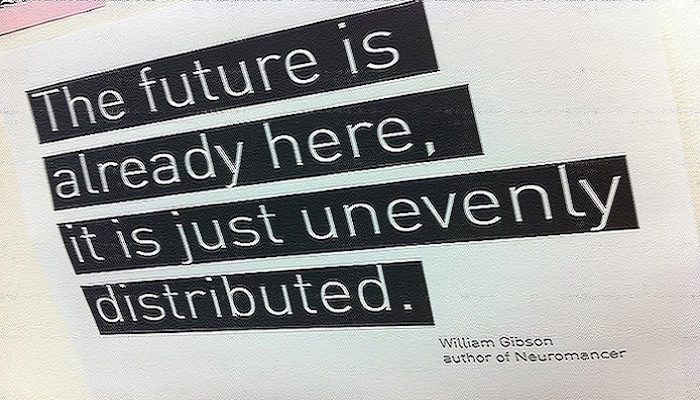
My introduction to Human Geography was a weird one. During my first two years of graduate school, my International Relations Department resided in the same space, physically (and intellectually?) as the Geography Department. It shouldn’t have been weird…or should it have been? Perhaps its weirdness was its value.
For IR students, a course on Human Geography was a must. We were required to read the works of Doreen Massey, Homi Bhabha, Edward Said, Bruno Latour, David Harvey, and Michel Foucault. Space was never smooth. Linear thinking was dangerous. We were always on the lookout for theoreticians trying to replace space with time (as mainstream writing on development and modernity often does). Maps couldn’t be trusted (because they were infused with power relations). We were forced to explore interstitial spaces and question whether the subaltern could speak. Paranoia about surveillance meant we were paying attention. And the sociology of a door closer was a matter of serious contemplation, ranking right up there with critical examinations of Captain America.
Perhaps this amalgamation – IR and Geography (not sociology and door closers) — was too weird, and thus, we were separated from geography, and more specifically the influences of Human Geography. We were lumped together with political science. (Like that makes any sense!)
This was not necessarily a bad thing. Talking about linear regression and being silent on Homi Bhabha just may turn out to be good job interview practice. And, to be quite honest, the overly pretentious language of theoretical Human Geography – talk of rhizomes, the interstitial, and overdetermination – seemed a dead end to me.
And yet, it is Human Geography’s indomitable weirdness that often saves it. When one reads Human Geography seriously, one is more open to the creative dance of complex causes and open to lumpy landscapes. In this way, readings in Human Geography can supplement your knowledge of cyberpunk. (Do Human Geographers know they are writing cyberpunk?)
In the last year, I have read over and over this saying about the future – It is already here, just unevenly distributed (often attributed to William Gibson, a seminal figure in cyberpunk). That could also be said about the past. The artifacts of the past are not just in museums, they are all around us, vibrant actors in the becoming future.
And since this line of thought is so often explored in Human Geography, it makes it a close relative to cyberpunk. (Human Geography is also more likely to take speculative fiction as a legitimate subject matter to explore).
So read Doreen Massey’s For Space. Or, read William Gibson’s Neuromancer. Understand how the lumpiness of our existence creates longings for old problems, even as their artifacts still haunt us. As you read either of these books, realize that you might be in a Starbucks somewhere in the Middle East where two other patrons are sipping a Frappuccino, debating the relevance of Sharia Law. Or, you might be in the same Starbucks, but this time two different patrons are debating the revival of 1920s-style laissez–faire economics. Realize that neat solutions, solutions that try to make existence too orderly and smooth, are always trouble and lead to the proliferation of yet more problems – like people at tables in close proximity sipping Frappuccinos discussing the relevance of Sharia just as another group discusses seriously 1920s-style laissez-faire economics.
Where will these discussions lead?
No one knows for sure, but Human Geography is already mapping the weird and captivating possibilities.
Further Reading on E-International Relations
- The Final Frontier for the Faithful: Islamic Rulings on Space
- What’s Wrong with Outer Space Colonialism?
- Reflections on Decoloniality, Time, History and Remembering
- Space Stations and International Politics
- Towards a Space-Time Heuristic: Notes on Meaningful and Factual Truth
- Opinion – Getting Diversity ‘Right’ In Australia’s Nascent Space Industry Matters